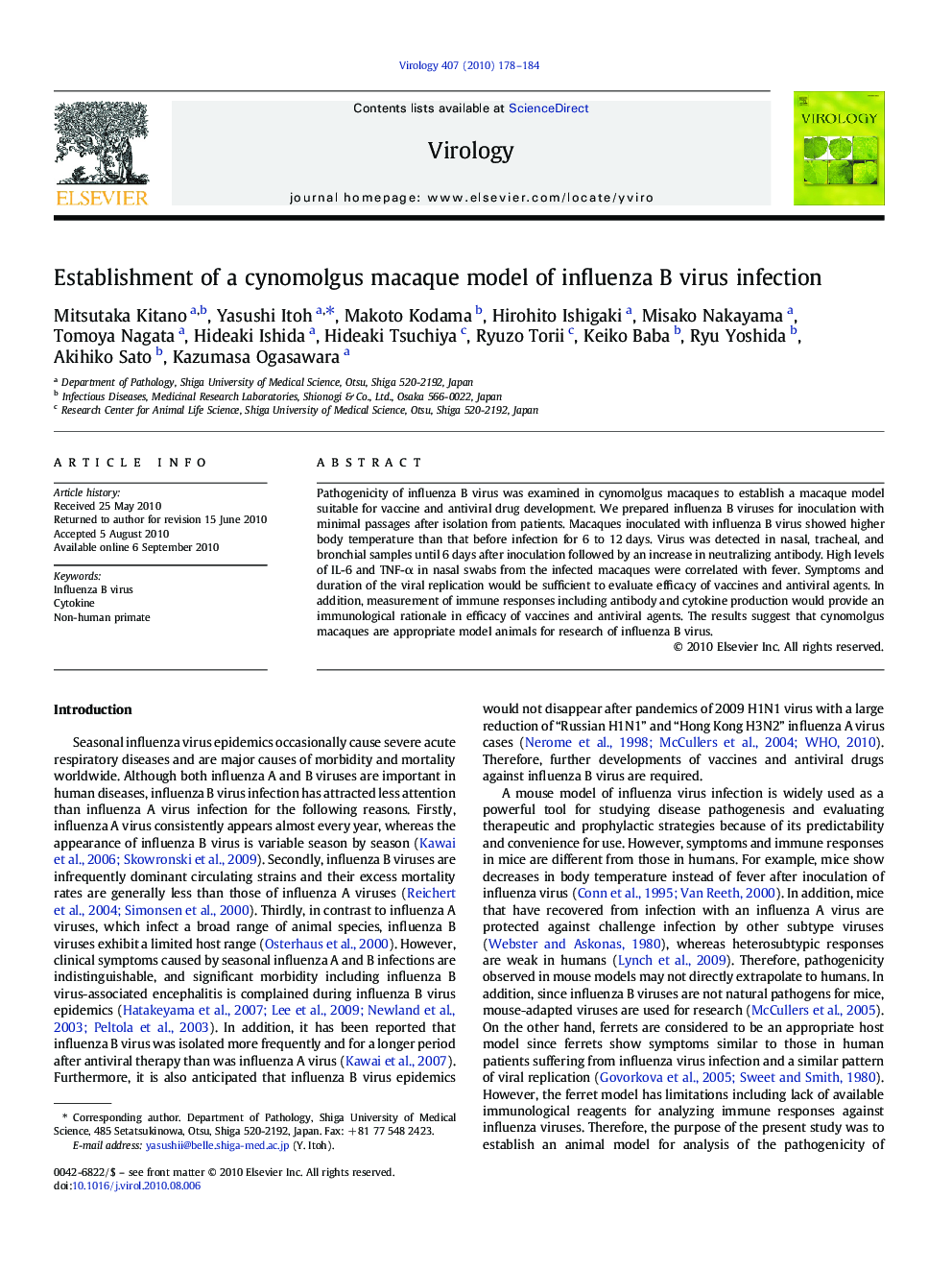| Article ID | Journal | Published Year | Pages | File Type |
|---|---|---|---|---|
| 6141410 | Virology | 2010 | 7 Pages |
Abstract
Pathogenicity of influenza B virus was examined in cynomolgus macaques to establish a macaque model suitable for vaccine and antiviral drug development. We prepared influenza B viruses for inoculation with minimal passages after isolation from patients. Macaques inoculated with influenza B virus showed higher body temperature than that before infection for 6 to 12 days. Virus was detected in nasal, tracheal, and bronchial samples until 6 days after inoculation followed by an increase in neutralizing antibody. High levels of IL-6 and TNF-α in nasal swabs from the infected macaques were correlated with fever. Symptoms and duration of the viral replication would be sufficient to evaluate efficacy of vaccines and antiviral agents. In addition, measurement of immune responses including antibody and cytokine production would provide an immunological rationale in efficacy of vaccines and antiviral agents. The results suggest that cynomolgus macaques are appropriate model animals for research of influenza B virus.
Related Topics
Life Sciences
Immunology and Microbiology
Virology
Authors
Mitsutaka Kitano, Yasushi Itoh, Makoto Kodama, Hirohito Ishigaki, Misako Nakayama, Tomoya Nagata, Hideaki Ishida, Hideaki Tsuchiya, Ryuzo Torii, Keiko Baba, Ryu Yoshida, Akihiko Sato, Kazumasa Ogasawara,
